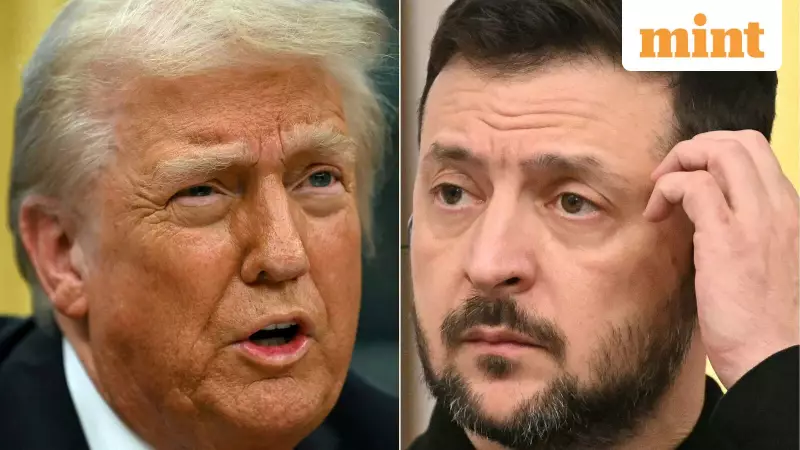
High-level officials from the United States, European nations, and Ukraine convened in Geneva on Sunday, November 23, for critical negotiations regarding former President Donald Trump's proposed blueprint to end Russia's ongoing war against Ukraine. The diplomatic gathering occurred amid surprising public criticism from Trump himself targeting Ukrainian leadership.
Trump's Social Media Outburst Against Ukraine
While diplomats assembled in Switzerland, President Trump launched a blistering attack via his Truth Social platform, directly accusing Ukraine's government of showing zero gratitude for American support. In his post, Trump emphatically stated: "UKRAINE 'LEADERSHIP' HAS EXPRESSED ZERO GRATITUDE FOR OUR EFFORTS, AND EUROPE CONTINUES TO BUY OIL FROM RUSSIA."
The former president further escalated his rhetoric by blaming the Biden administration for the conflict's existence. Trump asserted that the Russia-Ukraine war would have never occurred with what he described as "strong and proper U.S. and Ukrainian leadership." He claimed to have "inherited a war that should have never happened" and repeated his controversial allegation that the 2020 US election was "rigged," while maintaining that Russian President Vladimir Putin "never would have attacked" under his administration.
International Pushback Against US Peace Proposal
The Geneva meetings commenced with allied nations discussing potential modifications to the 28-point American blueprint, which has generated significant concern among Ukrainian and European governments who fear the proposal disproportionately favors Moscow. Multiple sources indicate the current draft leans too heavily toward Russian interests.
Ukrainian President Volodymyr Zelensky provided cautious commentary, noting that preliminary feedback suggested the US plan might incorporate "a number of elements based on the Ukrainian vision." However, he declined to specify which elements might align with Kyiv's position. "Further work is ongoing to ensure that all elements are truly effective in achieving the main goal — putting an end to the bloodshed and the war," Zelensky stated.
Allied Nations Reject Territorial Concessions to Russia
The American peace proposal has encountered widespread apprehension across European capitals. Ukraine and its international partners have explicitly ruled out any territorial concessions to Russia, warning that such terms would effectively reward Moscow's aggression and set a dangerous precedent for international security.
French Deputy Defense Minister Alice Rufo voiced particular concern about restrictions on Ukraine's military capabilities outlined in the US draft, describing them as "a limitation on its sovereignty." She emphasized that "Ukraine must be able to defend itself" and noted that "Russia wants war and has waged war many times over the past years."
President Zelensky has consistently maintained Ukraine's determination to "always defend" its territorial integrity and citizens against Russian invasion.
Confusion Over US Secretary of State's Comments
The American delegation, led by Secretary of State Marco Rubio alongside Army Secretary Dan Driscoll and special envoy Steve Witkoff, found itself embroiled in controversy over the weekend. Several US senators claimed that Rubio had privately described the peace plan as essentially constituting a Russian "wish list" during closed-door briefings.
Independent Senator Angus King reported that Rubio told lawmakers the proposal "was not the administration's plan" but rather a document reflecting "Russian demands." The State Department promptly denied this characterization, labeling the account "blatantly false." Secretary Rubio later suggested the senators had misunderstood his comments, though the dispute has added to the growing uncertainty surrounding the origins and true intentions behind the American peace blueprint.
The conflicting accounts have created additional diplomatic complications as negotiations continue, with allies questioning the coherence and strategic direction of the US approach to ending Europe's most significant military conflict since World War II.





